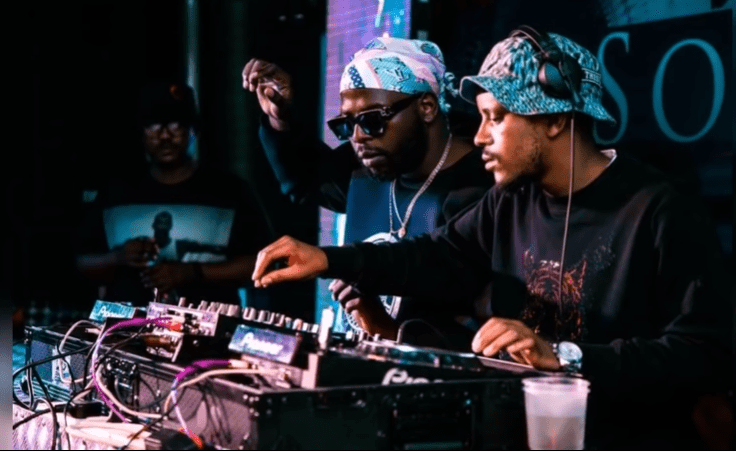Motsamai Mokotjo
“In any creative industry, the fact that others are moving in a certain direction is always proof positive, at least to me, that a new direction is the only direction,†George Lois noted.
In light of the circumstances the country is facing with various challenges and finding itself mired in a quagmire, the creative sector holds the key to pulling Lesotho out of its current predicament.
However, progress is hindered by the outdated legal framework governing intellectual property rights. The Copyright Order of 1989, although once a means of protecting creatives and attributing value to their work, now lags behind the dynamic evolution of the creative industry. Despite envisioning the establishment of ‘The Society of Authors and Artists,’ the current state of affairs fails to live up to its promise.
In this analysis, I explore the importance of empowering creative professionals, and the deficiencies of the existing legal framework, and advocate for the reformation of the copyright regime to support the creatives’ rights and foster a flourishing creative industry.
The creative industry, encompassing various sectors such as music, visual arts, literature, film, and crafts, holds immense potential to contribute significantly to the country’s economic growth and cultural identity. Through the creation and dissemination of artistic works, the industry not only adds value to the nation’s cultural landscape but also generates income and employment opportunities for its people, especially the youth.
The creative sector, if properly nurtured and supported, can serve as a powerful tool for fostering national pride, promoting tourism, and creating an identity that resonates globally.
Despite the potential of the creative industry, the legal infrastructure intended to safeguard the rights of creators and stimulate their productivity remains stuck in time. The Copyright Order of 1989 was enacted with noble intentions – to protect the intellectual property rights of authors, artists, and performers.
However, three decades later, this legislation struggles to cope with the rapidly evolving digital landscape, where creativity and its distribution have taken unprecedented shapes.
Within the 1989 Copyright Order, lies the vision of establishing ‘The Society of Authors and Artists.’ This society was conceived to serve as a non-profit making body corporate, responsible for promoting and protecting the interests of its members, who include authors, artists, and performers.
Moreover, The Society was meant to facilitate the collection and distribution of royalties or other remuneration accruing to its members concerning their rights under Section 7. The intent was to create a central entity that would act as an advocate and intermediary between creatives and the wider world, ensuring that their rights were upheld and that they received fair compensation for their work.
In light of the existing legal framework, the question arises: where is this envisioned organization, striving to secure royalties for the artists? The absence of a functional and effective ‘Society of Authors and Artists’ has left creators vulnerable to exploitation and deprived them of the rightful compensation for their creative efforts. The lack of collective bargaining power has led to artists struggling to secure their economic rights, with many facing difficulties in asserting copyright claims, preventing piracy, and seeking appropriate compensation for their work’s commercial use.
Several challenges hinder the establishment and effective functioning of the ‘Society of Authors and Artists’ and broader copyright reform in Lesotho. These challenges include:
- Inadequate Resources: The Society requires financial and human resources to carry out its functions effectively. Without sufficient support, it may lack the capacity to protect the rights of creators and promote their interests adequately.
- Lack of Awareness: Many creatives in Lesotho might not be fully aware of their intellectual property rights or the benefits of collective representation. Raising awareness and educating creators about their rights is crucial to building a strong and united creative community.
- Technological Advancements: The rapid growth of digital technologies has revolutionized content creation and distribution. However, the existing copyright legislation struggles to address new challenges posed by digital piracy, online streaming, and global content consumption trends.
- Political Will: The reform of the copyright framework requires political will and commitment from policymakers. Given the numerous pressing issues that governments face, prioritizing copyright reform might not be at the forefront of their agenda.
The creative industry possesses vast potential to drive economic growth, promote cultural heritage, and contribute to national development. Nevertheless, this potential remains largely untapped due to the outdated copyright framework and the lack of a functional ‘Society of Authors and Artists.’
The creative community requires the support and protection that a robust and contemporary copyright regime can provide. To unleash the full potential of the creative industry, there must be a collective effort from policymakers, creatives, and other stakeholders to reform the existing legal framework, create a vibrant and proactive ‘Society of Authors and Artists,’ and empower artists to assert their rights and seek fair compensation for their creative endeavours.




